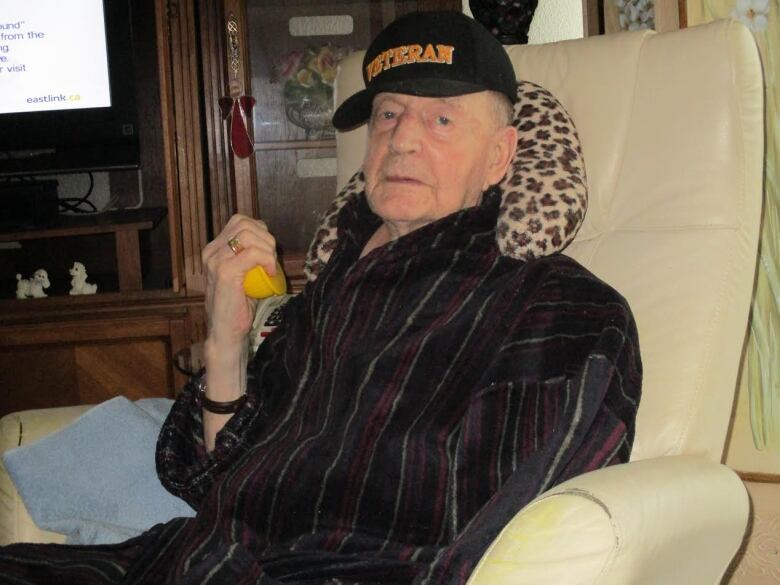Veterans advocate pushes minister to approve care for 94-year-old veteran
Former MP and veterans advocate Peter Stoffer says minister can grant compassionate care for Petter Blindheim
Former MP and veterans advocate Peter Stoffer says he is "quite perturbed" the federal government has denied long-term care for a 94-year-old Norwegian-Canadian veteran living in Halifax.
Petter Blindheim applied through Veterans Affairs Canada for coverage at Camp Hill Veterans' Memorial hospital. His family has received three rejection letters, stating he isn't eligible.
"Whoever wrote the letter to the family had to go to an awful lot of extra effort to find a way to say no," Stoffer said.
"There is absolutely nothing stopping the minister from exercising his authority and allowing Mr. Blindheim into Camp Hill immediately."
Allied veterans are entitled to Canadian benefits under the War Veterans Allowance. Blindheim has been denied care because he enlisted during the German occupation of Norway during the Second World War. Veterans Affairs classifies any Norwegian fighter during that era as "resistance service."

Stoffer believes it's a technicality that could be overlooked.
"They're sending right now, I believe, the wrong message but I'm trying to cut the minister some slack. He is new in his job and trying to figure it all out but in this particular case it's a no brainer," he said.
Veterans Affairs Canada has declined an interview.
Allied versusresistance
Christopher Bell, a history professor at Dalhousie University, also questions why Veterans Affairs rejected Blindheim's war service.
"As far as I can tell, he should be given full recognition as an allied sailor," Bell said.
"Norway was considered to be an allied power during the war. It had a government in exile and armed forces with the allies, and was recognized as an allied power along with Poland or other states that were occupied by the Germans during the Second World War."
Bell differentiates a resistance fighter as somebody who remains in the country and resists from within.
Joined Royal Norwegian Navy
"The main distinction that can be made is typically they aren't wearing a uniform. They have no legal authority as soldiers and today would be classified I suppose as illegal combatants," he said.
According to pictures obtained by Blindheim's family, he wore a uniform. Documents show Blindheim joined the Royal Norwegian Navy on May 14, 1941.

Bell adds the Royal Norwegian Navy made a "significant contribution" to allied forces in the Second World War.
"It provided a number of convoy escorts in the North Atlantic during the Battle of the Atlantic. The Norwegian Navy protected allied soldiers as they hit the beaches of Normandy in 1944, so there's no doubt this was a fully functioning and integrated allied force that was right there on the front lines throughout the Second World War," he said.
'Platinum' care
Stoffer makes the case that any veteran should be entitled to specialized care.
"Camp Hill has more staff per patient ratio than a regular hospital does," he said.
"Plus the fact the staff are highly trained and they're very well skilled in the art of the military and the veteran community and they speak the language and they know exactly what these men and women have gone through in their lives. They know exactly what the triggers are and how to provide that additional, as I call it, platinum care."
Blindheim lives with his wife in a Halifax apartment, where provincial home care workers check in daily.













_(720p).jpg)


 OFFICIAL HD MUSIC VIDEO.jpg)
.jpg)



























































































